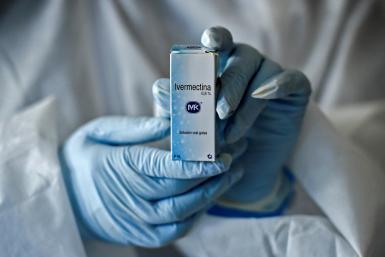Since the early days of the pandemic, there have been talks about the alleged miraculous efficacy of ivermectin against COVID-19. But almost three years into the global health crisis, there’s still no solid evidence to back this up.
On the contrary, there’s mounting evidence of the drug’s lack of potency against SARS-CoV-2 or the virus responsible for the coronavirus disease.
This week, Medscape published a report on what seemed to be the final verdict on the horse dewormer as a treatment for COVID-19. According to the medical website, there’s reason to believe that ivermectin is not an effective drug against coronavirus infection.
Citing the TOGETHER trial involving data from 1,400 patients from Brazil, Medscape said there was no significant difference in hospitalizations or ER visits between those randomized to ivermectin vs. placebo or another therapy.
Randomized trials also showed no effect of the drug on COVID-19 patients, crashing everyone’s hope for a more affordable medication for the viral infection.
Aside from being cheap, ivermectin is widely available. So when anecdotal reports and early cohort studies suggested that it could provide an economical means to treat COVID-19, there was a buzz on social media about its promising effects.
There was even a narrative that authorities were suppressing the good news about the antiparasitic drug because the execs of big pharmaceutical products were eager to earn big from the vaccines.
There was also a bit of commotion in February when the doctor group called the Front Line COVID-19 Critical Care Alliance (FLCCC) included ivermectin in its “i-recover” protocol of medications, vitamins and therapies for long COVID.
The group said that because of the limited clinical trials of the post-COVID syndrome, it came up with the “i-recover” recommendations “based on the pathophysiologic mechanisms of COVID-19 and post-viral illnesses” and their “collective experience observing profound and sustained clinical responses.”
It is worth noting that ivermectin was not the only drug recommended by the group as first-line therapy. Prednisone, naltrexone, omega-3 fatty acids and vitamin D were also included in the protocol.
Despite the recommendation, other studies on ivermectin showed a negative take on its application in COVID-19 treatment. One of them was a large study published in the New England Journal of Medicine in August that insisted the drug could not treat a SARS-CoV-2 infection.
For the study, the researchers studied ivermectin, metformin and fluvoxamine, and all three failed to show efficiency in preventing low oxygen levels, ER visits, hospitalizations and even death due to COVID-19.














